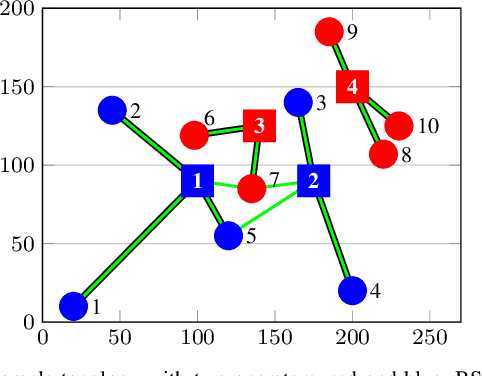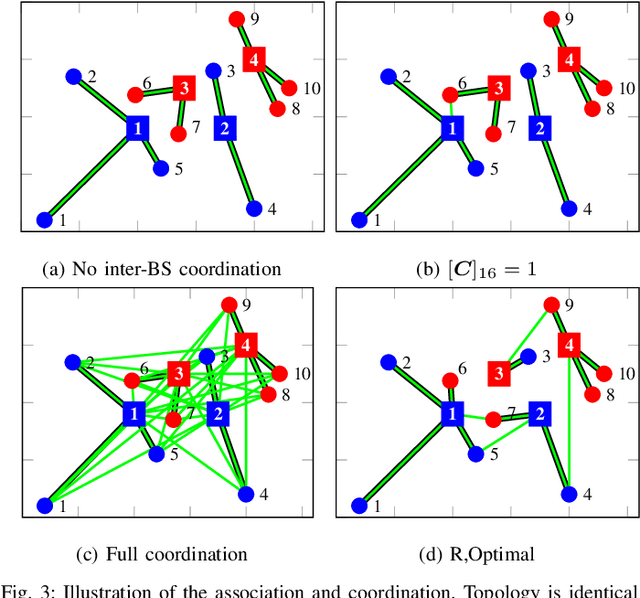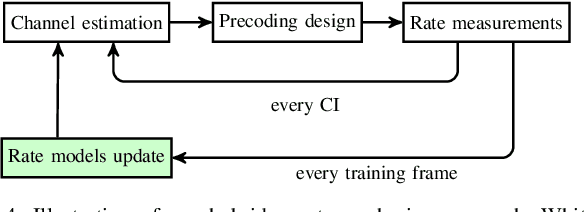A Hybrid Model-based and Data-driven Approach to Spectrum Sharing in mmWave Cellular Networks
Paper and Code
Mar 19, 2020



Inter-operator spectrum sharing in millimeter-wave bands has the potential of substantially increasing the spectrum utilization and providing a larger bandwidth to individual user equipment at the expense of increasing inter-operator interference. Unfortunately, traditional model-based spectrum sharing schemes make idealistic assumptions about inter-operator coordination mechanisms in terms of latency and protocol overhead, while being sensitive to missing channel state information. In this paper, we propose hybrid model-based and data-driven multi-operator spectrum sharing mechanisms, which incorporate model-based beamforming and user association complemented by data-driven model refinements. Our solution has the same computational complexity as a model-based approach but has the major advantage of having substantially less signaling overhead. We discuss how limited channel state information and quantized codebook-based beamforming affect the learning and the spectrum sharing performance. We show that the proposed hybrid sharing scheme significantly improves spectrum utilization under realistic assumptions on inter-operator coordination and channel state information acquisition.
 Add to Chrome
Add to Chrome Add to Firefox
Add to Firefox Add to Edge
Add to Edge